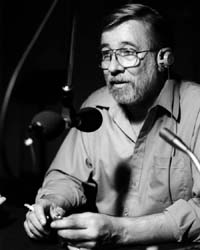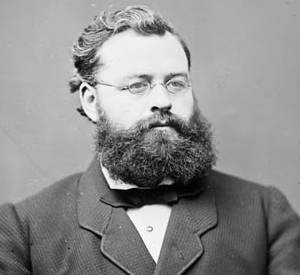The politics of Canada functions within a framework of parliamentary democracy and a federal system of parliamentary government with strong democratic traditions. Canada is a constitutional monarchy where the monarch is head of state. In practice, executive authority is entrusted to the Cabinet, a committee of ministers of the Crown chaired by the Prime Minister of Canada that act as the executive committee of the King's Privy Council for Canada and are responsible to the democratically elected House of Commons.

The Province of Canada was a British colony in British North America from 1841 to 1867. Its formation reflected recommendations made by John Lambton, 1st Earl of Durham, in the Report on the Affairs of British North America following the Rebellions of 1837–1838.

The Province of Upper Canada was a part of British Canada established in 1791 by the Kingdom of Great Britain, to govern the central third of the lands in British North America, formerly part of the Province of Quebec since 1763. Upper Canada included all of modern-day Southern Ontario and all those areas of Northern Ontario in the Pays d'en Haut which had formed part of New France, essentially the watersheds of the Ottawa River or Lakes Huron and Superior, excluding any lands within the watershed of Hudson Bay. The "upper" prefix in the name reflects its geographic position along the Great Lakes, mostly above the headwaters of the Saint Lawrence River, contrasted with Lower Canada to the northeast.

Canadian Confederation was the process by which three British North American provinces—the Province of Canada, Nova Scotia, and New Brunswick—were united into one federation, called the Dominion of Canada, on July 1, 1867. This process occurred in accordance with the rising tide of Canadian nationalism that was then beginning to swell within these provinces and others. Upon Confederation, Canada consisted of four provinces: Ontario and Quebec, which had been split out from the Province of Canada, and the provinces of Nova Scotia and New Brunswick. The province of Prince Edward Island, which had hosted the first meeting to consider Confederation, the Charlottetown Conference, did not join Confederation until 1873. Over the years since Confederation, Canada has seen numerous territorial changes and expansions, resulting in the current number of ten provinces and three territories.

The Fortress of Louisbourg is a tourist attraction as a National Historic Site and the location of a one-quarter partial reconstruction of an 18th-century French fortress at Louisbourg on Cape Breton Island, Nova Scotia. Its two sieges, especially that of 1758, were turning points in the Anglo-French struggle for what today is Canada.

Sir Oliver Mowat was a Canadian lawyer, politician, and Ontario Liberal Party leader. He served for nearly 24 years as the third premier of Ontario. He was the eighth lieutenant governor of Ontario and one of the Fathers of Confederation. He is best known for defending successfully the constitutional rights of the provinces in the face of the centralizing tendency of the national government as represented by his longtime Conservative adversary, John A. Macdonald. This longevity and power was due to his maneuvering to build a political base around Liberals, Catholics, trade unions, and anti-French-Canadian sentiment.

Peter John Gzowski, known colloquially as "Mr. Canada", or "Captain Canada", was a Canadian broadcaster, writer and reporter, most famous for his work on the CBC radio shows This Country in the Morning and Morningside. His first biographer argued that Gzowski's contribution to Canadian media must be considered in the context of efforts by a generation of Canadian nationalists to understand and express Canada's cultural identity. Gzowski wrote books, hosted television shows, and worked at a number of newspapers and at Maclean's magazine. Gzowski was known for a friendly, warm, interviewing style.

Arthur Sturgis Hardy, was a Canadian lawyer and Liberal politician who served as the fourth premier of Ontario from 1896 to 1899.
Christopher Alexander Hagerman, was a Canadian militia officer, lawyer, administrator, politician and judge.
Hugh Alan Craig Cairns, was a Canadian political scientist and professor. His scholarship focused on diverse topics within Canadian politics, including federalism, the Charter of Rights and Freedoms, electoral politics, the role of the courts, the Judicial Committee of the Privy Council, and Indigenous issues. Cairns was a leading expert of federalism and governance, and his scholarship remains foundational in Canadian political science.

John Douglas Arnup, was a Canadian judge on the Court of Appeal for Ontario, who is best known for having pioneered universal legal aid in Ontario.

Sir Adam Wilson was a lawyer, judge and political figure in Canada West. He served as mayor of Toronto in 1859 and 1860 and in the Legislative Council of the Province of Canada for York North from 1860 to 1863. After his political career, he served as a judge and was named Chief Justice of the Court of Queen's Bench. At the time of his retirement, he was the longest-serving judge in Ontario and was subsequently knighted.

By the arrangements of the Canadian federation, Canada's monarchy operates in Ontario as the core of the province's Westminster-style parliamentary democracy. As such, the Crown within Ontario's jurisdiction may be referred to as the Crown in Right of Ontario, His Majesty in Right of Ontario, the King in Right of Ontario, or His Majesty the King in Right of Ontario. The Constitution Act, 1867, leaves many functions in Ontario specifically assigned to the sovereign's viceroy, the lieutenant governor of Ontario, whose direct participation in governance is limited by the constitutional conventions of constitutional monarchy.

Donald Guthrie, was a Scottish-born Ontario lawyer and political figure. He represented Wellington South in the House of Commons of Canada as a Liberal member from 1876 to 1882 and Wellington South in the Legislative Assembly of Ontario from 1886 to 1894.

A member of Parliament is a term used to describe an elected politician in the House of Commons of Canada, the lower chamber of the bicameral Parliament of Canada.

Section 97 of the Constitution Act, 1867 is a provision of the Constitution of Canada relating to the qualifications for judges of the provincial superior, district and county courts in the common law provinces.

Section 98 of the Constitution Act, 1867 is a provision of the Constitution of Canada relating to the qualifications for judges of the provincial superior, district and county courts in the province of Quebec.

Section 9 of the Constitution Act, 1867 is a provision of the Constitution of Canada which vests the executive power in the monarch.

Section 53 of the Constitution Act, 1867 is a provision of the Constitution of Canada relating to taxation and appropriation statutes.

Section 89 of the Constitution Act, 1867 is a provision of the Constitution of Canada relating to the first elections after Confederation in the provinces of Ontario, Quebec and Nova Scotia.











